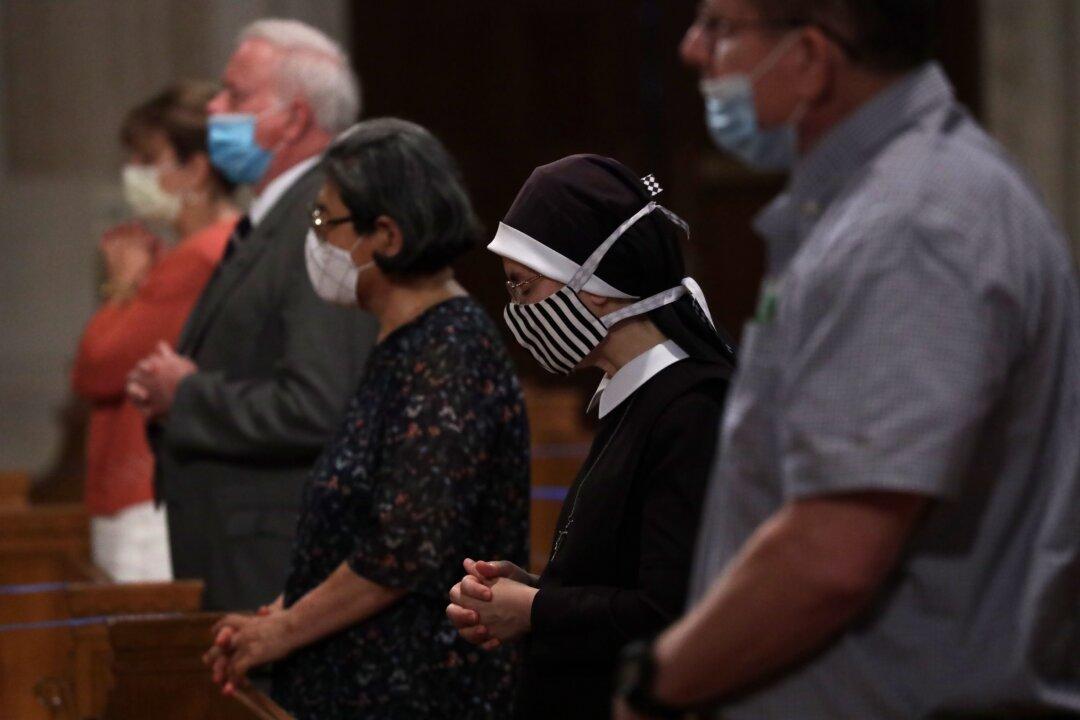President Donald Trump’s administration stopped the Centers for Disease Control and Prevention (CDC) from recommending people attend church remotely in the early days of the COVID-19 pandemic, according to emails made public on April 29.
The CDC planned to include the recommendations in guidance for faith communities released in May 2020, according to an email from May Davis Mailman, a White House lawyer.





